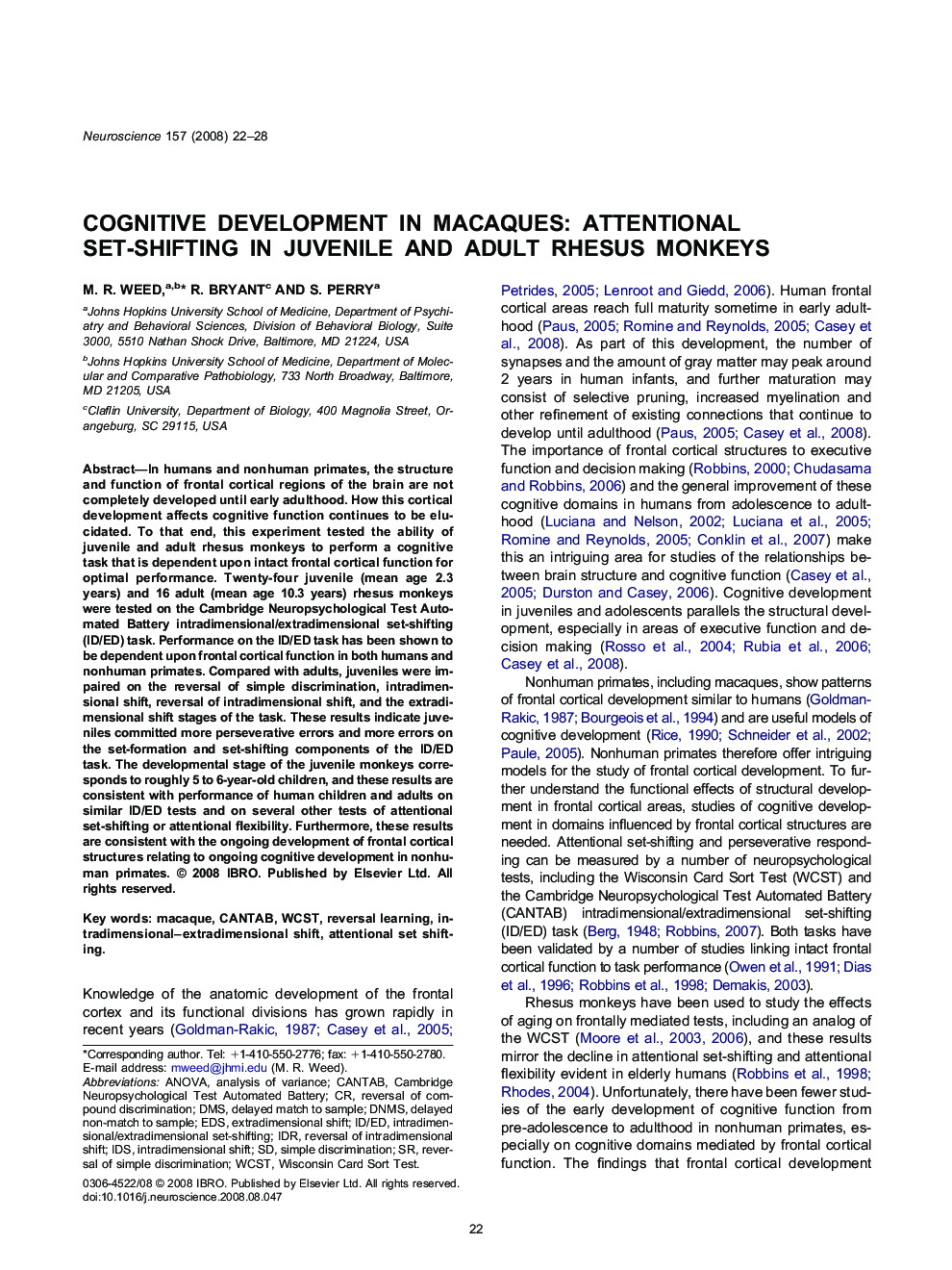| Article ID | Journal | Published Year | Pages | File Type |
|---|---|---|---|---|
| 4341141 | Neuroscience | 2008 | 7 Pages |
In humans and nonhuman primates, the structure and function of frontal cortical regions of the brain are not completely developed until early adulthood. How this cortical development affects cognitive function continues to be elucidated. To that end, this experiment tested the ability of juvenile and adult rhesus monkeys to perform a cognitive task that is dependent upon intact frontal cortical function for optimal performance. Twenty-four juvenile (mean age 2.3 years) and 16 adult (mean age 10.3 years) rhesus monkeys were tested on the Cambridge Neuropsychological Test Automated Battery intradimensional/extradimensional set-shifting (ID/ED) task. Performance on the ID/ED task has been shown to be dependent upon frontal cortical function in both humans and nonhuman primates. Compared with adults, juveniles were impaired on the reversal of simple discrimination, intradimensional shift, reversal of intradimensional shift, and the extradimensional shift stages of the task. These results indicate juveniles committed more perseverative errors and more errors on the set-formation and set-shifting components of the ID/ED task. The developmental stage of the juvenile monkeys corresponds to roughly 5 to 6-year-old children, and these results are consistent with performance of human children and adults on similar ID/ED tests and on several other tests of attentional set-shifting or attentional flexibility. Furthermore, these results are consistent with the ongoing development of frontal cortical structures relating to ongoing cognitive development in nonhuman primates.
